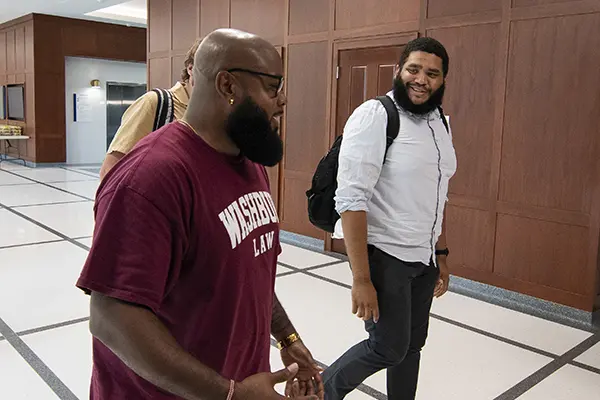

Washburn Law’s J.D./MCJ program is designed for students passionate about both law and criminal justice. Typically, earning these degrees separately would take more time, but our integrated approach allows you to complete both in a shorter time span. Students start with the full first-year law curriculum, ensuring a strong legal foundation, before branching out into criminal justice courses. This streamlined program saves you time and tuition while providing a robust, interdisciplinary education.

Opting for the J.D./MCJ program at Washburn means gaining a competitive edge in the job market. Dual degrees enhance your credentials, showcasing your comprehensive understanding of legal and criminal justice systems. Washburn’s strong emphasis on practical, skills-based education ensures you’ll graduate ready to tackle complex issues in diverse professional settings. Our strategic location in Topeka connects you with key state, federal and local agencies, expanding your professional network and opportunities.

Applying to the JD/MCJ program involves meeting the requirements of both the School of Law and the School of Applied Studies. You must submit applications to both schools, indicating your interest in the dual degree program.